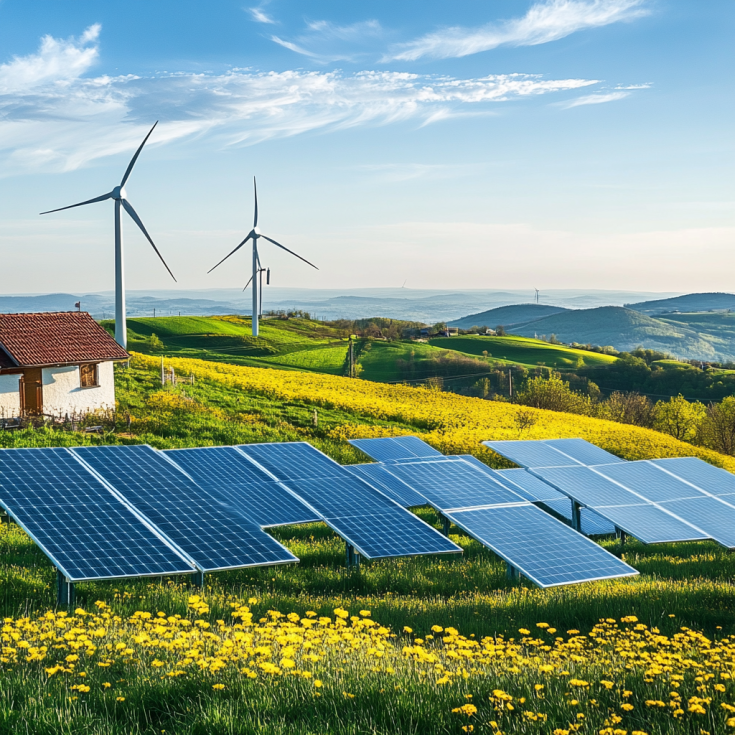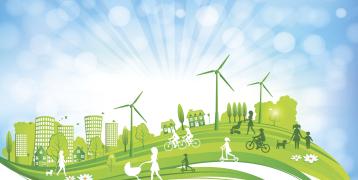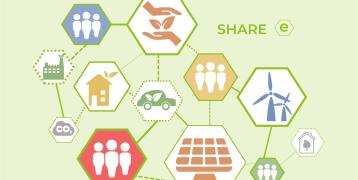Municipal support for Renewable Energy Communities

Energy communities, which allow groups of citizens, associations and businesses to generate, use and sell their own renewable energy, have high potential to support decarbonisation goals, as well as stimulating the local economy, creating new green jobs and reducing energy costs for citizens. The role of municipalities in enabling energy communities is a core topic of many current Interreg Europe projects, and was also recently discussed in a Policy Learning Platform workshop on energy communities. So what can they do?
1. Raise awareness and facilitate co-operation
A first step for municipalities is to communicate with citizens about energy communities and raise awareness of their potential. This can take the form of printed materials and websites, or be implemented through workshops, consultations and information sessions.
The Niemce Energy Cluster, Poland (REC4EU) organised events to establish a dialogue between citizens and the local authorities to create a cluster of interested parties. Municipalities can also take inspiration from the SHAREs project, funded by Horizon Europe, which has made white-label materials available for designing a communication campaign and organising awareness-raising events.
In some cases, municipalities may choose to establish dedicated information desks or support teams, such as Tuscany region’s CERTO campaign, addressing citizens on the benefits of energy communities. The campaign has provided training to staff in local branch offices of the Regional Agency for Resource Recovery, an in-house company of the Region working on waste and energy, to act as local information points and organise local activities.
Municipalities can additionally act as facilitators and bring various stakeholders together to collaborate on projects. By identifying frontrunner groups – early adopters and local leaders who can champion energy communities – municipalities can support them as role models, demonstrating the feasibility and benefits of such initiatives, and inspiring broader community participation.
The engagement path for stakeholders identified in Interreg Europe REC4EU project (to be published in early 2025), particularly emphasises the potential role of local champions to drive local development.
2. Provide resources and support
Municipalities may choose to support first movers by providing resources and support – this need not be financial support, though incentives and grants can of course be necessary to initiate energy community projects. Instead, municipalities could provide staff and expertise to support in setting up communities, as well as meeting rooms and other logistical support, or even land or rooftops for the installation of renewable energy technologies.
For example, the Interreg Europe POWERTY project implemented three pilot actions, including a renewable energy community in Andalusia, Spain, where the local administration made school rooftops available for the installation of PV panels, with energy consumed by vulnerable families in the area.
Establishing partnerships with local educational institutions and industry experts to provide technical assistance or capacity building exercises can also be supported by municipalities. For example, the EnLuces initiative created a network of energy community promoters in Extremadura as well as one-stop-shops to provide expert support and training. The initiative organises training courses and capacity building events for potential energy community developers and municipalities to enhance their skills including courses on how to promote energy communities.
3. Participate directly in a community
As hinted by the EnLuces case, municipalities can actively participate in energy communities, as members or as leaders, taking the initiative in establishing a new community. For example, near Forlì, Emilia-Romagna (Italy) nine municipalities have committed to establishing energy communities, taking the lead in their development. The first municipality to act, Bertinoro, has taken the lead in identifying installation sites and gathering consumers to act as founding members, alongside the municipality.
Municipalities can have several types of roles in energy communities, such as establishing energy communities and remaining a member or otherwise initiating projects and then gradually transferring ownership and control to citizens. In this way, municipalities can de-risk investments and ensure the longevity of projects which may otherwise lose political impetus. Municipalities can also commit to purchasing energy generated by local energy communities, providing a stable revenue stream to enhance their financial viability.
Interreg Europe’s renewable energy community projects
For more good practices on renewable energy communities, discover what our projects are working on:1.




